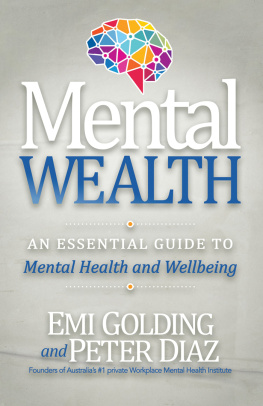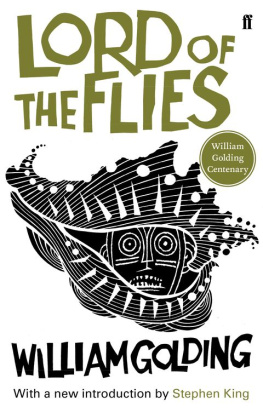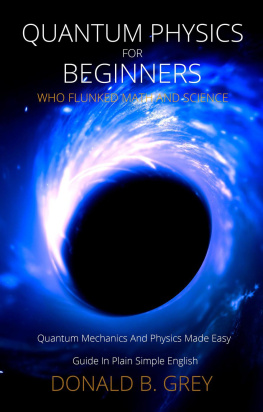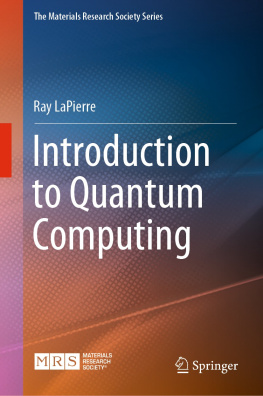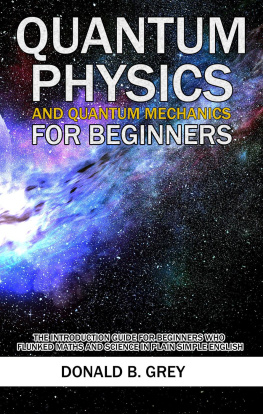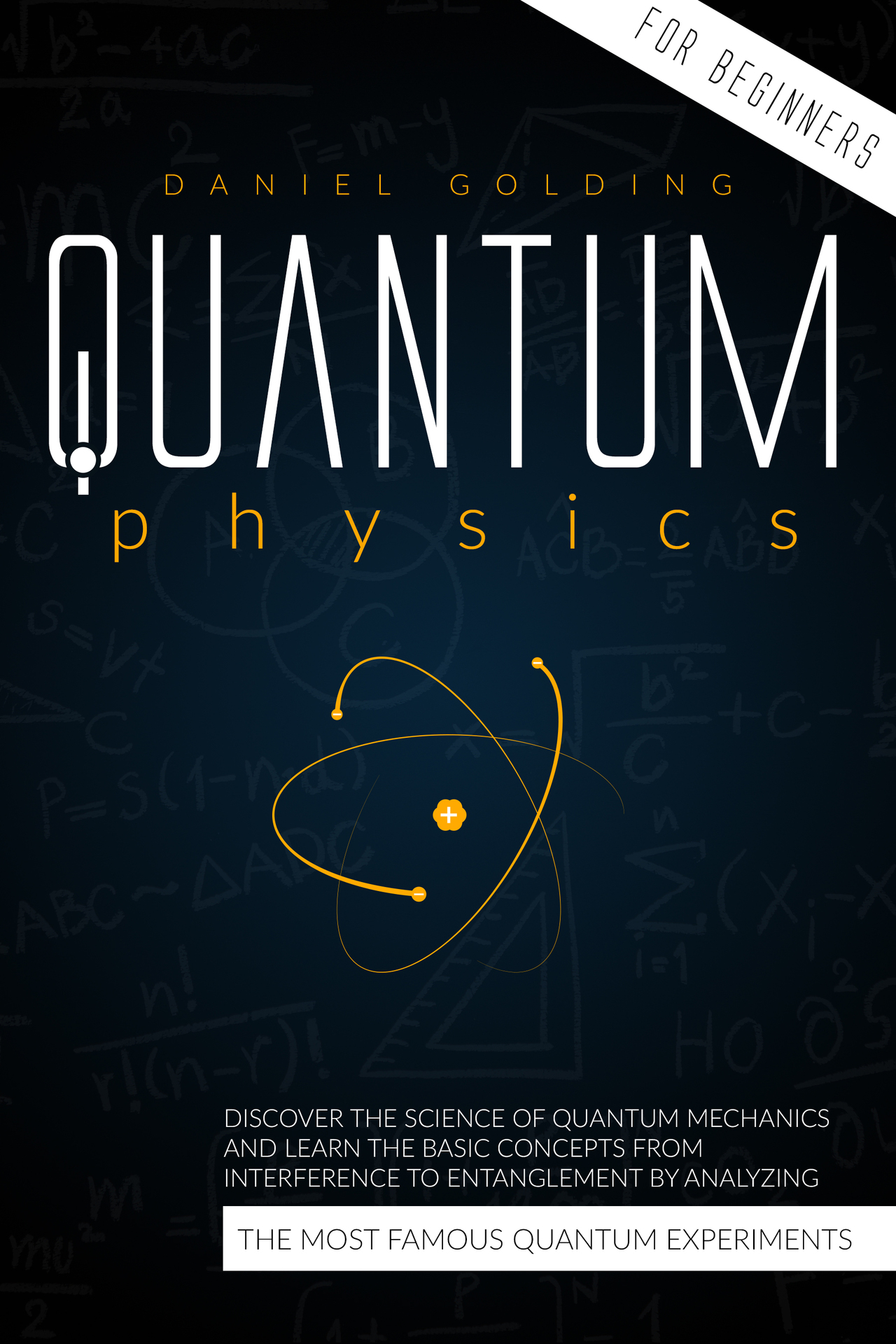quantum physics for beginners
discover the science of quantum mechanics and learn the basic concepts from interference to entanglement by analyzing the most famous quantum experiments
daniel golding
Table of Contents
Copyright 2020 - All rights reserved.
The content contained within this book may not be reproduced, duplicated, or transmitted without direct written permission from the author or the publisher.
Under no circumstances will any blame or legal responsibility be held against the publisher, or author, for any damages, reparation, or monetary loss due to the information contained within this book. Either directly or indirectly.
Legal Notice:
This book is copyright protected. This book is only for personal use. You cannot amend, distribute, sell, use, quote or paraphrase any part, or the content within this book, without the consent of the author or publisher.
Disclaimer Notice:
Please note the information contained within this document is for educational and entertainment purposes only. All effort has been executed to present accurate, up to date, and reliable, complete information. No warranties of any kind are declared or implied. Readers acknowledge that the author is not engaging in the rendering of legal, financial, medical, or professional advice. The content within this book has been derived from various sources. Please consult a licensed professional before attempting any techniques outlined in this book.
By reading this document, the reader agrees that under no circumstances is the author responsible for any losses, direct or indirect, which are incurred as a result of the use of the information contained within this document, including, but not limited to, errors, omissions, or inaccuracies.
Introduction
We're about to tackle Quantum Mechanics (QM from now on) and it could be frightening. Unlike other arguments, however, the real difficulty is not in understanding, but in accepting something completely senseless, precisely in the right meaning of the term: not sensible, that is, contrary to the perception of our senses. It is then necessary to brainwash ourselves first and prepare us for seemingly unacceptable phenomena.
The beginning will, therefore, be dedicated to this resetting phase. As Gilmore said, we're entering Alice's wonderland: the quantum world. However, you will notice that quantum mechanics is much "easier" than the theory of relativity. In fact, you could get a child to help you digest certain concepts. The great difficulty does not lie in their complexity, but their absurdity in terms of logic acquired after many years of existence in a world that constantly follows certain rules. The more the brain is free of preconceptions and ingrained notions, the better it is.
Chapter 1. Resetting Our Brains
In ancient Greece, there was a very heated dispute about the nature of light. Claudius Ptolemy and other scholars thought it was a kind of ray traveling from the eye to the object being observed.
It seems, of course, a huge misinterpretation and this was proved only a few centuries later. However, with the advent of QM, this conclusion has become much less absurd and naive, because of the subjective repercussions of the phenomena concerning the infinitely small and, therefore, the light itself.
I used this somewhat ambiguous and mysterious beginning to tackle the fundamentals of the QM precisely to get as close as possible to the amazement and sense of uncertainty and incapacity that a human mind, even of the highest level, undergoes when it approaches the rules/non-rule that govern elementary particles and their absurd world, truly similar to Alice's Wonderland.
The important thing is then to be able not to be surprised at anything and to accept and try to describe even what our daily logic would tend to reject. We must not, however, pretend to understand what is happening in the QM. It is by definition incomprehensible, as the 1965 Nobel Prize in physics, Richard Feynman himself said, precisely the one who can be considered the greatest illustrator and divulger of the QM problem in its most essential and fundamental points.
His double-slit experiment is considered by many to be the most beautiful and elegant physics experiment ever made. Yet, the conclusion is the least scientific one can think of if one remains anchored to the physics that regulates the macroscopic reality of the Universe.
To introduce the QM and make it less absurd than it might seem when compared to everyday macroscopic reality, it is convenient to start from light and its history. A story that seems less than scientific. A continuous change of ideas and irrefutable evidence colliding with each other, apparently annulling the previous conclusions.
It was considered for a long time as a shower of particles or corpuscles, similar in some way to the bullets fired from a rifle (Newton himself was more than convinced of this). After centuries of long research and experiments, it became clear that the situation was not to be that way: the light behaved, beyond any reasonable doubt, like the waves of the sea. The phenomenon of light interference and Young's experiment, in particular, provided incontrovertible proof.
In the twentieth century, after other long researches, light appeared, however, again composed of particles, called photons and, through the photoelectric effect, it was even possible to count them (the Nobel Prize taken by Einstein was not given to him for his theory of relativity, but precisely for his studies on the photoelectric effect). The game, however, was not over. Other research quickly demonstrated that the undulatory nature could not be completely erased. Even if we are talking about ideas and deductions made by the greatest scientists of humanity, what was achieved was a misunderstanding. A misunderstanding so obvious and evident that it can be noticed by anyone.
Allow me, then, to accompany you towards a thought that I consider very important to make simpler an argument that appears not so much complicated as really absurd. We are used to living in a world where everything we perceive is composed of macroscopic events and complex systems.
Classical physics has always tried to describe and explain these phenomena, succeeding very well. Laws have been written and experiments have been made to prove them. Everything seemed almost perfect. Not everything was (and is) perfectly explained but if only it would be enough to continue in that direction, and sooner or later, the laws of physics could describe the whole Universe. On the other hand, what is still not understood is essentially linked to phenomena and increasingly gigantic objects. It would be enough to continue with perseverance according to well-established logic and experience. And, instead, things are not like that.
You have to look through the telescope from the apparently wrong side to see it. In other words, to explain the bigger things you have to look at the smaller things. Not only that, though. A microscope is not enough. You also have to accept situations that appear completely senseless in the macroscopic reality perceived every day. And this is undoubtedly the simplest, and at the same time, the most difficult part of the whole enterprise.
Time as well assumes an ambiguous and incredible characteristic. We know very well how to describe the difference between the past and future. We know from direct experience the arrow of time. Yet, the laws that regulate the essence of the Universe are all reversible, that is, they have no problem in replacing past with future and vice versa. How then is it possible that macroscopic life follows an irreversible verse? Isn't it, after all, composed of microstructures, governed by reversible laws?


